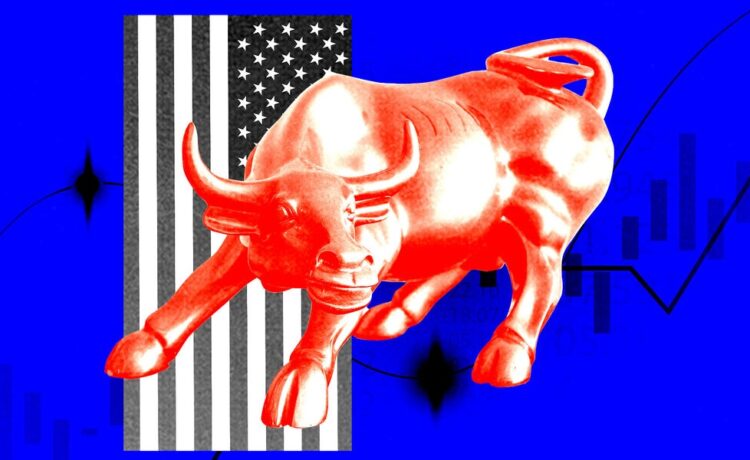It’s tempting to bet the market when you have high expectations of who may soon take Washington.
But speculative trades around elections are risky plays. Even if the predicted candidate wins, it doesn’t guarantee they will implement the expected policies, or that the macroeconomic levers will behave as projected.
Still, investors will try to position themselves to catch some alpha or mitigate downside risk. It’s what hedge funds have been actively doing as they reshuffled positions this month, says Bob Elliott, the cofounder of Unlimited, the provider of a hedge fund ETF that uses proprietary technology to track and mimic hedge fund trades close to real-time.
Some of the popular trades he has recently observed can be correlated to assumptions around policy preferences and potential outcomes of a Trump administration. These include expectations of who the beneficiaries of an extension on tax cuts will be, what parts of the market would be hurt by a continuation of deficit spending, and any economic consequences brought by easing monetary policy through direct or indirect influence of the Federal Reserve.
Since asset managers view elections with high uncertainty, many will take a balanced approach by creating a portfolio that isn’t necessarily overweight on one particular political outcome or another, he said.
Still, there are a few key corners of the market where hedge funds are confident enough about their thesis that they’re betting their money on it, the first of which is the expectation of a strong US dollar.
“Part of that is a broader macro story of the US economy outperforming the rest of the world and having tighter monetary policy as a result, Elliot said. “But the other side of that is the likely policy outcomes of a Trump administration that would probably favor the dollar through a series of tariffs being implemented in one form or another, which would help reduce imports and incentivize domestic investment likely to be supportive to the dollar over time.”
Elliot has observed hedge funds expressing bullishness on the dollar in two main ways. One is through exchange rate futures, which are contracts with a set exchange rate for future purchases or sales of a currency. The second route, which has been more popular, is currency forwards, which are customizable contracts between two sides to exchange a set amount of one currency for another at a fixed exchange rate later. These are derivative positions, with banks taking a bet on the dollar rallying relative to the Euro or the Yen, he noted.
“We’ve seen the hedge fund community move from roughly neutral on the dollar a couple of months ago to being about as long as they’ve been in the last couple of decades,” Elliot said.
Hedge funds are also taking long positions in exchange-traded funds specific to sectors likely to benefit from a loosening of regulatory constraints. Particularly, they are betting on ETFs made up of commodity producers and companies, as well as financials, particularly big banks, Elliot said.
However, the increasing odds of a Trump administration combined with a Republican sweep are raising concerns about a continued or expanded deficit, which would be bearish for bonds, he noted. In response, Elliot says hedge funds are moving into short positions on long-duration bonds, which is five years or more. This is being expressed by the uptick in sales of bond futures contracts. This is done when there’s an expectation that bond prices will decline, which drops the value of the contracts and allows funds to buy them back at a lower price.
Finally, given the rising uncertainty around inflation and deficit spending, hedge funds have shifted to increasing their positions in gold by buying gold futures contracts, he said. These contracts set up agreements on the purchase of a predetermined amount of gold at a set price by a set date.














